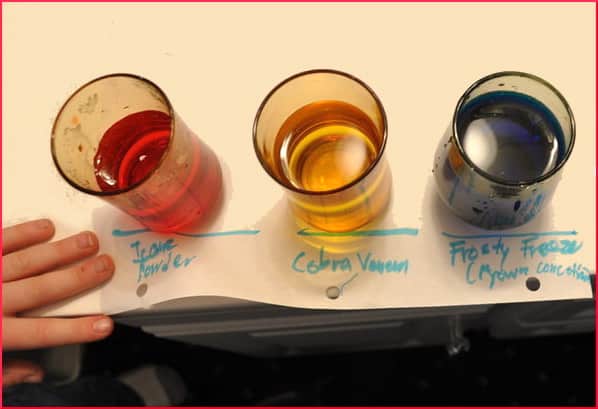
The classic tastes were sweet, sour, bitter, and salty; and then along came umami. And then, for one reason or another, several more contenders turned up wanting to join the ranks of basic tastes. On the human tongue, researchers have discovered previously overlooked receptors; or at least reactions strong and distinctive enough to make them suspect that receptors might be involved, even if they have not been physically identified.
Other candidates for basic taste status are coolness (as experienced from mint or menthol) and piquancy or pungency (hot spiciness). When a taste conveys coolness, touch receptors are fooled into thinking it is objectively cold. Hot spiciness activates actual heat receptors. Metallicity might be a taste, or it might be a tiny electrical current. Some researchers make the case for calcium being a basic taste.
Since the 1800s, the notion has sporadically arisen that fat, or at any rate fatty acids, can claim to be a basic taste. In 2005, French rodents experiments caused the researchers to claim that fatty substances are the sixth taste. It would make evolutionary sense, for nature to include a signal to consume high-energy fat in food-scarce environments. On whether humans might have those receptors too, they could only speculate.
But is fat technically a taste, or more of an oral sensation, belonging to a different sense, touch? The jury is still out. In 2015, Tibi Puiu reported that…
[…] to distinguish from what people generally refer to as “fat”, the researchers at Purdue University propose a new term to describe the sixth basic taste: oleogustus.
Journalist Adam Hadhazy points out an interesting observation gleaned from a study of this phenomenon:
Intriguingly, the subjects with the higher sensitivities to fat ate fewer fatty menu items and were less likely to be overweight than those with low sensitivity.
Nowadays, when the typical Western diet is about 40 percent fat, the enjoyment of it is no longer a survival trait but a liability. Like salt and sugar, fat is highly suspect for another reason. They all have the ability to get people “hooked.”
A BBC article credits Professor Nada Abumrad with this quotation:
As we gain more information regarding the function of this receptor, we may be able to devise better strategies to address the addictive potential of dietary fat.
So again, we are brought back to experts like Steven A. Witherly, Ph.D., who says fat is one of the substances that can make the pleasure centers of people’s brains “light up” and look just like the brain scans of hardcore substance addicts when confronted by their drug of choice.
Your responses and feedback are welcome!
Source: “Tip of the Tongue: Humans May Taste at Least 6 Flavors,” LiveScience.com, 12/30/11
Source: “Fat is recognized as the sixth basic taste, but it’s awful on its own,” ZMEScience.com, 07/27/15
Source: “‘Taste bud’ for fatty foods found,” BBC.co.uk, 11/0/15
Photo credit: Whit Andrews on Visualhunt/CC BY

 FAQs and Media Requests:
FAQs and Media Requests: 











